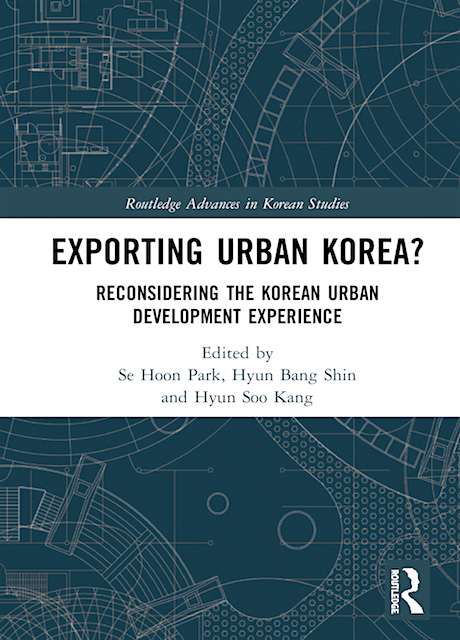With Kim Su
Exporting Urban Korea? Reconsidering the Korean Urban Development Experience, pp. 81-100
Park Se Hoon, Shin Hyun Bang, Kang Hyun Soo (eds.)
Routledge | London | 2021 | ISBN 978-036-74-9840-5
 Markets used to be the major drive behind the transformation of localities in Korea. The state facilitated the commodification of localities through property-led urban redevelopment, which resulted in the demolition of deprived residential areas, displacement of the residents, heightened social conflicts, and destruction of social relationship networks. At the same time, localities were sites of grassroots struggles that challenged the state and struggled against the commodification of localities. Recently, the state recognized the negative consequences of urban redevelopment and started to promote state-led urban regeneration to improve the living environment and restore communal life in the cities. This chapter examines the changing relations between the state, property markets and community and their role in the transformation of localities and urban development in Seoul. The comparison of Songhak Maeul and Seowon Maeul shows that the state involvement had a significant impact on the transformation of localities. While the role of state is important, the chapter also argues that the significance of grassroots struggles in the transformation of localities should not be overlooked. Recognizing localities as sites of community engagement could contribute to a more comprehensive understanding of urban development and international development cooperation in Korea, as their success has often been attributed to the state and property markets without much consideration of the state–community relationship in building sustainable cities.
Markets used to be the major drive behind the transformation of localities in Korea. The state facilitated the commodification of localities through property-led urban redevelopment, which resulted in the demolition of deprived residential areas, displacement of the residents, heightened social conflicts, and destruction of social relationship networks. At the same time, localities were sites of grassroots struggles that challenged the state and struggled against the commodification of localities. Recently, the state recognized the negative consequences of urban redevelopment and started to promote state-led urban regeneration to improve the living environment and restore communal life in the cities. This chapter examines the changing relations between the state, property markets and community and their role in the transformation of localities and urban development in Seoul. The comparison of Songhak Maeul and Seowon Maeul shows that the state involvement had a significant impact on the transformation of localities. While the role of state is important, the chapter also argues that the significance of grassroots struggles in the transformation of localities should not be overlooked. Recognizing localities as sites of community engagement could contribute to a more comprehensive understanding of urban development and international development cooperation in Korea, as their success has often been attributed to the state and property markets without much consideration of the state–community relationship in building sustainable cities.
Source: doi.org/10.4324/9781003047599.
